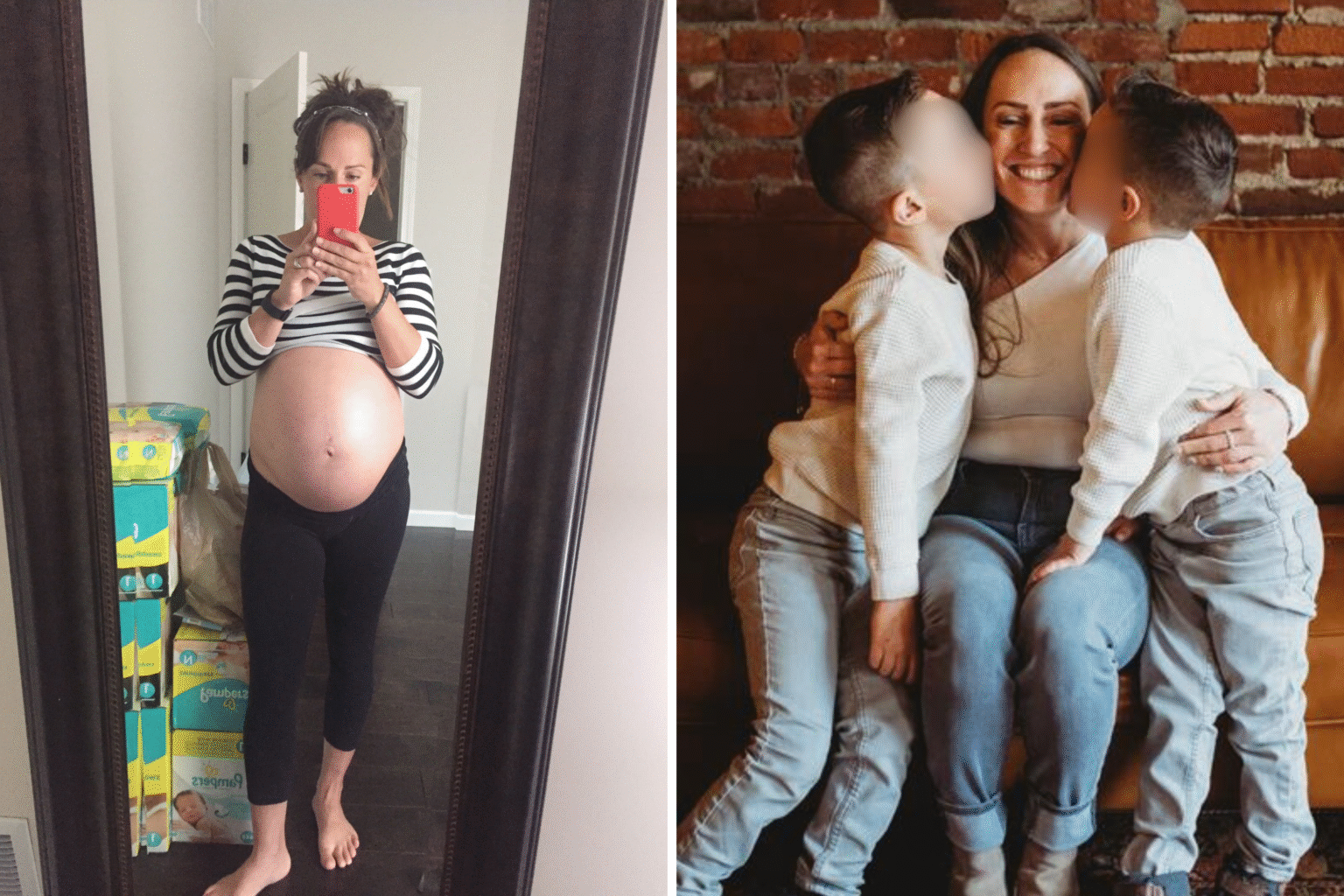For Cynthia Donovan, looking flawless on her wedding day in 2011 was a non-negotiable. But the relentless pursuit of perfection would eventually derail her health and fertility.
“I got engaged and thought, ‘I have to get into the best shape of my life,'” Donovan said. “So I kicked into overdrive.”
Prior to wedding planning, the registered dietitian from New York, already led a health-conscious lifestyle. She ate clean—plenty of vegetables and lean meats—and worked out five days a week. But once a ring was on her finger, she amped up her regimen: exercising seven days a week, sometimes for up to three hours a day.
“I would exercise before work and then run after work. It was partly for stress relief, but I wasn’t fueling my body properly, and that created even more stress physically,” she said.
She began tracking everything and wouldn’t eat more than 1,500 calories.
The now 39-year-old told Newsweek: “I was eating healthier and calculating my calories based on height. That’s another misconception, that our bodies are just calculations.”
Despite being praised by others for her discipline and physique, Donovan’s body was showing signs of distress. After going off birth control in hopes of checking her fertility, her period didn’t return.
“My doctor told me it was normal post-pill amenorrhea and to wait three to five months. But with the wedding approaching, I went back on the pill,” she said. “What I didn’t realize was that my period wasn’t going to come back any time soon.”
That decision led to a grueling five-year journey of misdiagnoses, hormone therapies, supplements, acupuncture, and mounting frustration.
She told Newsweek: “I was told I had Polycystic Ovary Syndrome (PCOS), which is actually a common misdiagnosis when the real issue is hypothalamic amenorrhea.”
What Is Functional Hypothalamic Amenorrhea?
Donovan was eventually diagnosed with functional hypothalamic amenorrhea (FHA), which typically falls into three categories based on its underlying cause, according to the Mayo Clinic: weight loss-related, stress-related, and exercise-related. It is estimated to affect around 1.62 million women in the United States.
“The condition results in low estrogen and high cortisol levels along with other endocrine pathways disrupted, including thyroid and hormones in the gut such as ghrelin,” Dr. Chrisandra Shufelt, a professor and chair of the Division of General Internal Medicine at Mayo Clinic in Jacksonville, Florida, told Newsweek. “FHA is also a form of infertility, albeit reversible once the condition reverses.”
Shufelt, a certified menopause practitioner with fellowship training in vascular biology and women’s health, confirmed it is common for women with this condition to be diagnosed with PCOS.
“PCOS is another common cause of secondary amenorrhea, also about 30-35 percent of cases. Women with FHA are often misdiagnosed as having polycystic ovarian syndrome; however, PCOS is associated with high testosterone and higher body mass index, as opposed to FHA,” she said.
Donovan’s Journey to Motherhood
“I was mad. The diagnosis didn’t make sense to me,” Donovan told Newsweek.
At 30, she began fertility treatment. After three failed rounds of IVF, Donovan finally conceived on the fourth, only after fully scaling back workouts and increasing her calorie intake.
Her first son was born in 2016. After breastfeeding for 18 months, and following the advice to eat more and exercise less, her period naturally returned—and just three months later, she became pregnant again without medical intervention. Her second child was born in 2018.
Looking back at her wedding photos brings mixed emotions.
“Do you just want to see a nice body—or a woman who lived, laughed and loved up until her special day?” she asked. “When I look at mine, I see a girl who was unhappy with her body, even though she worked her butt off. I was empty inside and on edge, because I wasn’t eating enough.”
The experience changed her both personally and professionally. In 2019, Donovan decided to specialize in hypothalamic amenorrhea and launched her own business, @period.nutritionist, on Instagram in 2020 to help women reclaim their health and fertility.
“The financial cost was mostly covered by insurance, but the time, stress, lab work, and emotional toll were enormous,” she said.
Today, she eats intuitively and exercises moderately.
“You can get in shape, but it doesn’t have to be extreme. It shouldn’t cost you your health,” Donovan said. “I want women to feel free—not stressed—around food.”
Is there a health issue that’s worrying you? Let us know via health@newsweek.com. We can ask experts for advice, and your story could be featured on Newsweek.
Read the full article here

